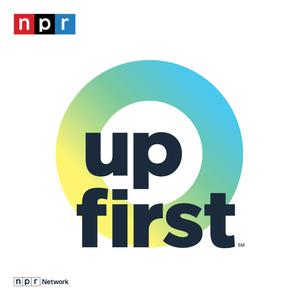
Shorenstein Center Media and Politics Podcast
Shorenstein Center on Media, Politics and Public Policy at Harvard Kennedy
- 28 minutes 7 secondsBig, If True: Disappointingly, Steak-umm is Not a Talking Steak.
"Big, If True" is a webinar series from the Technology and Social Change Research Project at the Shorenstein Center. Hosted by Dr. Joan Donovan, the series focuses on media manipulation, disinformation, and the future of democracy during a pandemic.
In this special episode, Dr. Donovan talks with Jesse Bender, a manager for Steak-umms' Twitter account, about the brand's recent success with viral messaging combating misinformation around the COVID-19 pandemic.
What roles are brand social media accounts playing in today's information ecosystem? How does a sliced frozen meat product become a trusted voice of reason and leader of an online community (and what, exactly, is the Steak-umms community)? Listen in to find out!
21 April 2020, 5:32 pm - 1 hour 32 minutesPreserving America's Thought Leader Magazines
Magazines that cover American public affairs, culture, and life have long held an important place in American journalism. But the magazine industry, like the rest of journalism, has struggled in recent years.
This special edition of our podcast is an audio version of Heidi Legg's new Shorenstein Center Paper "Preserving America's Thought Leader Magazines." https://shorensteincenter.org/preserving-americas-thought-leader-magazines
The paper starts with a brief history of the thought leader magazine with an emphasis on how they built trust, which is key to attracting loyal readers. The discussion then turns to brand affinity, as it relates to trust and affects revenue streams. Finally, the paper examines how six leading thought leader magazines – New York Magazine, Mother Jones, Wired, The Information, The Atlantic, and Rolling Stone – are all responding to changing public demand and delivery.
Thanks to Harvard College student Andrew Zucker for producing this audio paper.
25 March 2020, 6:40 pm - 38 minutes 45 secondsNews Narratives in a Post-Factual Era
How does news and truth survive, when trust in what is fact has suffered and people live in bubbles of isolated realities fed by polarized and fragmented media sources? What is the role of narrative storytelling in this new media landscape?
Thomas Patterson is the Bradlee Professor of Government and the Press at Harvard Kennedy School, and the author of the recent book "How America Lost Its Mind: The Assault on Reason that is Crippling America." He talks with former Shorenstein Center Fellow and Filmmaker-in-Residence Gabriel London, whose paper titled "Hanging by a Thread: Serialized Narratives in a Post-Factual Era" was just published at ShorensteinCenter.org.
11 March 2020, 9:05 pm - 37 minutes 16 secondsOn the Trail of Xi Jinping
U.S./China relations have seen huge shifts over the past decade. Jane Perlez, former Beijing Bureau Chief for The New York Times, witnessed much of it during her seven years reporting from China. Her new podcast, On the Trail of Xi Jinping, follows the rise of China's current leader, and how the West got him so wrong. From clinking champagne glasses at the State Department to the lowest ebb in US China relations in 40 years, Perlez and a series of expert China watchers explain what's happened.
For a full transcript of this podcast visit https://shorensteincenter.org/transcript:-on-the-trail-of-xi-jinping/
19 December 2019, 9:30 am - 1 hour 28 minutesThe Landscape of Local News Models in America
Local journalism is in crisis, off and online. Years of downsizing in the face of digital disruption have weakened regional and local news organizations. But there are a few glimpses of hope in models for local news across the country.
In this special edition of our podcast, Heidi Legg, the Shorenstein Center's Director of Special Projects, reads her new landscape study on local news models across America. This landscape study includes over 40 mini case studies on outlets that are making the shift, starting fresh, or experimenting with new ways to survive and thrive.
To read the full print version of the paper, visit https://shorensteincenter.org/landscape-local-news-models/
9 July 2019, 3:43 pm - 1 hour 14 minutesStreaming War Won: Or how I learned to stop worrying and love the news
Shorenstein Center Spring 2019 Fellow Edward F. O'Keefe served most recently as Senior Vice President of Content Development at CNN, previously worked as a reporter at ABC News and editor in chief of Now This, and is a media industry expert in mobile, short-form video, OTT and streaming content. His research as a Shorenstein Fellow has focused on why news may be the key to winning the streaming video wars, and who is doing news (even if they don't call it that) in the streaming universe to-date.
In this special episode of the Shorenstein Center Media & Politics Podcast, Ed O'Keefe reads his paper "Streaming War Won" in its (very engaging) entirety.
For the original, written, version of this paper visit https://shorensteincenter.org/streaming-war-won/
30 April 2019, 3:00 am - 1 hour 13 secondsGarrett Graff: Decoding the Mueller Investigation
Shorenstein Center director Nicco Mele speaks to Garrett M. Graff, journalist, historian, and director of the Aspen Institute's Cybersecurity and Technology Program, about the Mueller Investigation: what we know, what we still don't know, and what's next.
This Shorenstein Center Speaker Series event was recorded April 2, 2019, at Harvard Kennedy School.
Music ("Skip a Beat" by Intimidation) provided by ExtremeMusic.com.
3 April 2019, 6:07 pm - 18 minutes 5 secondsBehind the Reporting: South Bend Tribune and ProPublica's "Criminal Justice in Elkhart, Indiana"
Reporting from the South Bend Tribune and ProPublica revealed deep flaws and abuses of power in the criminal justice system in Elkhart, Indiana – from new revelations in the wrongful convictions of two men, to the promotions of police supervisors with serious disciplinary records, to the mishandling of police misconduct cases. The investigation led to the resignation of the police chief, criminal charges against two officers and plans for an independent investigation of the department, demonstrating the strong, immediate impact that investigative journalism can have at the local level – and its ability to force critical changes in communities.
Read this excellent example of collaborative journalism here: https://www.southbendtribune.com/elkhartcoverage/
Heidi Legg talked to reporter Christian Sheckler from the south Bend Tribune, and Ken Armstrong from ProPublica, about the deep searches they did through public records to find evidence of misconduct, and the collaborative experience of reporting this story at the South Bend Tribune - a local newspaper with only 12 reporters.
This episode is part of the Shorenstein Center's special series of interviews with the finalists for the 2019 Goldsmith Prize for Investigative Journalism. The Goldsmith Prize winner will be announced at Harvard's Kennedy School of Government on March 12, 2019.
Music provided by ExtremeMusic.com
12 March 2019, 4:01 am - 13 minutes 15 secondsBehind the Reporting: ProPublica's "Zero Tolerance"
ProPublica obtained and published a secret recording from inside a border patrol detention center that captured the sounds of children, recently separated from their families at the Mexican border, sobbing and begging for their parents. The audio clip was played on the floors of Congress, sparking widespread condemnation and having an almost immediate impact, with President Trump signing an executive order to end the family separation policy within 48 hours of its publication. ProPublica reporters then dug deeper into conditions at the detention centers, detailing abuse and assaults on immigrant children, directly countering the administration’s claims that the shelters were safe havens.
Read, and listen, to their reporting here: https://www.propublica.org/series/zero-tolerance
In this episode, Heidi Legg talks with reporters Ginger Thompson and Mike Grabell about getting the audio recording, and how their reporting unfolded and uncovered more and more layers from there.
This episode is part of the Shorenstein Center's special series of interviews with the finalists for the 2019 Goldsmith Prize for Investigative Journalism. The Goldsmith Prize winner will be announced at Harvard's Kennedy School of Government on March 12, 2019.
Music provided by ExtremeMusic.com
11 March 2019, 9:00 am - 19 minutes 27 secondsBehind the Reporting: The Philadelphia Inquirer's "Toxic City: Sick Schools"
In "Toxic City: Sick Schools" The Philadelphia Inquirer revealed unsafe conditions in Philadelphia’s rundown public schools, with children forced to learn in buildings rife with mold, asbestos and flaking and peeling lead paint. By scouring maintenance logs and conducting scientific testing inside 19 elementary schools, and engaging teachers and parents in their reporting, the Inquirer built a comprehensive database of the shocking conditions putting children at risk on a daily basis.
Read the reporting: http://media.philly.com/storage/special_projects/lead-paint-poison-children-asbestos-mold-schools-philadelphia-toxic-city.html
In this episode of the Shorenstein Center podcast, Heidi Legg talks to reporters Wendy Ruderman, Barbara Laker, and Dylan Purcell, along with Investigations Editor Jim Neff, about how they found and analyzed data, tracked an expanding web of problems, and eventually uncovered the vast number of health hazards across the city's school system.
This episode is part of the Shorenstein Center's special series of interviews with the finalists for the 2019 Goldsmith Prize for Investigative Journalism. The Goldsmith Prize winner will be announced at Harvard's Kennedy School of Government on March 12, 2019.
Music provided by ExtremeMusic.com
8 March 2019, 10:00 am - 16 minutes 37 secondsBehind the Reporting: Frontline and the Investigative Reporting Program's "Trafficked in America"
FRONTLINE from PBS and the Investigative Reporting Program at UC Berkeley's Graduate School of Journalism produced an investigative documentary on labor trafficking happening today on U.S. soil. Reporters told the story of unaccompanied minors from Central America who were forced to work against their will at an Ohio egg farm, the criminal network that exploited them, the companies that profited, and how U.S. government policies and practices helped to deliver some of the children directly to their traffickers. The investigation uncovered widespread criminal abuse, and will be used as a Department of Justice Anti-Human Trafficking training tool for thousands of law enforcement officials and prosecutors.
Watch the film: https://www.pbs.org/wgbh/frontline/film/trafficked-in-america/
In this episode of the Shorenstein Center podcast, Heidi Legg talks to Daffodil Altan and Adrés Cediel about the shoeleather reporting required to find and get access to people who had been trafficked in the U.S., and the need for cultural competency and language fluency for reporting stories like these.
This episode is part of the Shorenstein Center's special series of interviews with the finalists for the 2019 Goldsmith Prize for Investigative Journalism. The Goldsmith Prize winner will be announced at Harvard's Kennedy School of Government on March 12, 2019.
Music provided by ExtremeMusic.com
7 March 2019, 10:00 am - More Episodes? Get the App
Your feedback is valuable to us. Should you encounter any bugs, glitches, lack of functionality or other problems, please email us on [email protected] or join Moon.FM Telegram Group where you can talk directly to the dev team who are happy to answer any queries.
 The Daily
The Daily
 Up First
Up First
 Radiolab
Radiolab
 This American Life
This American Life